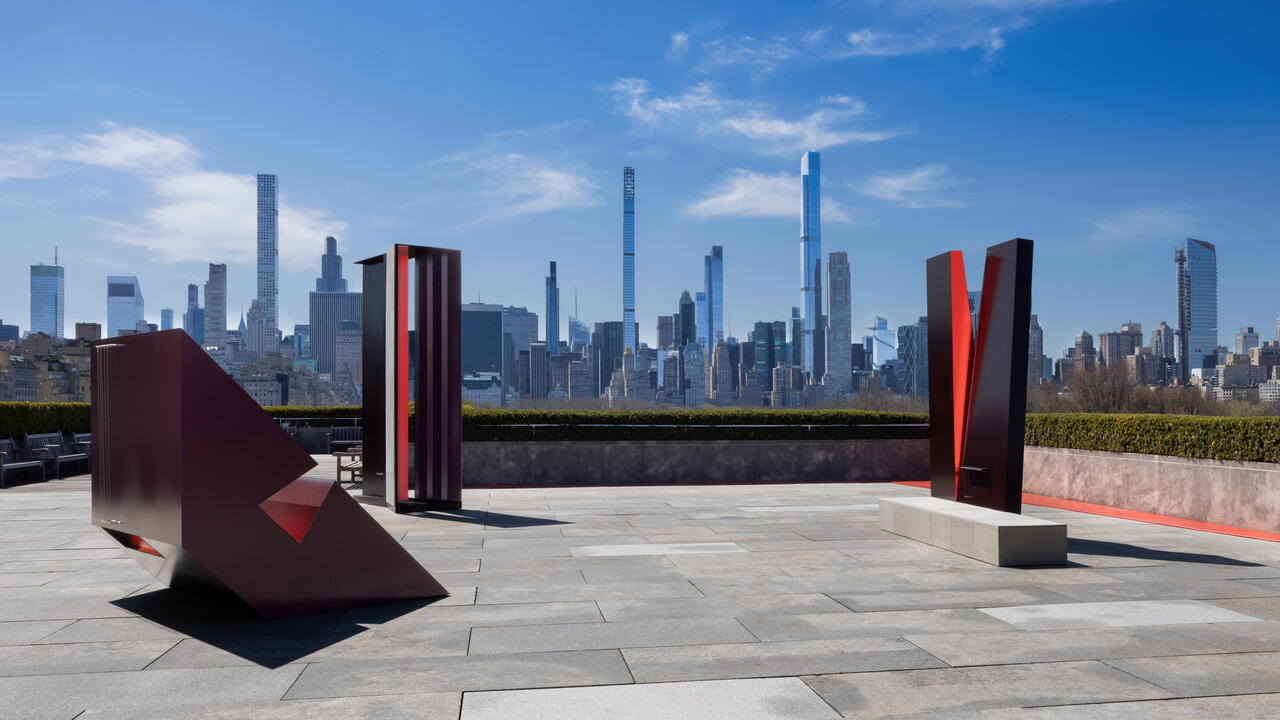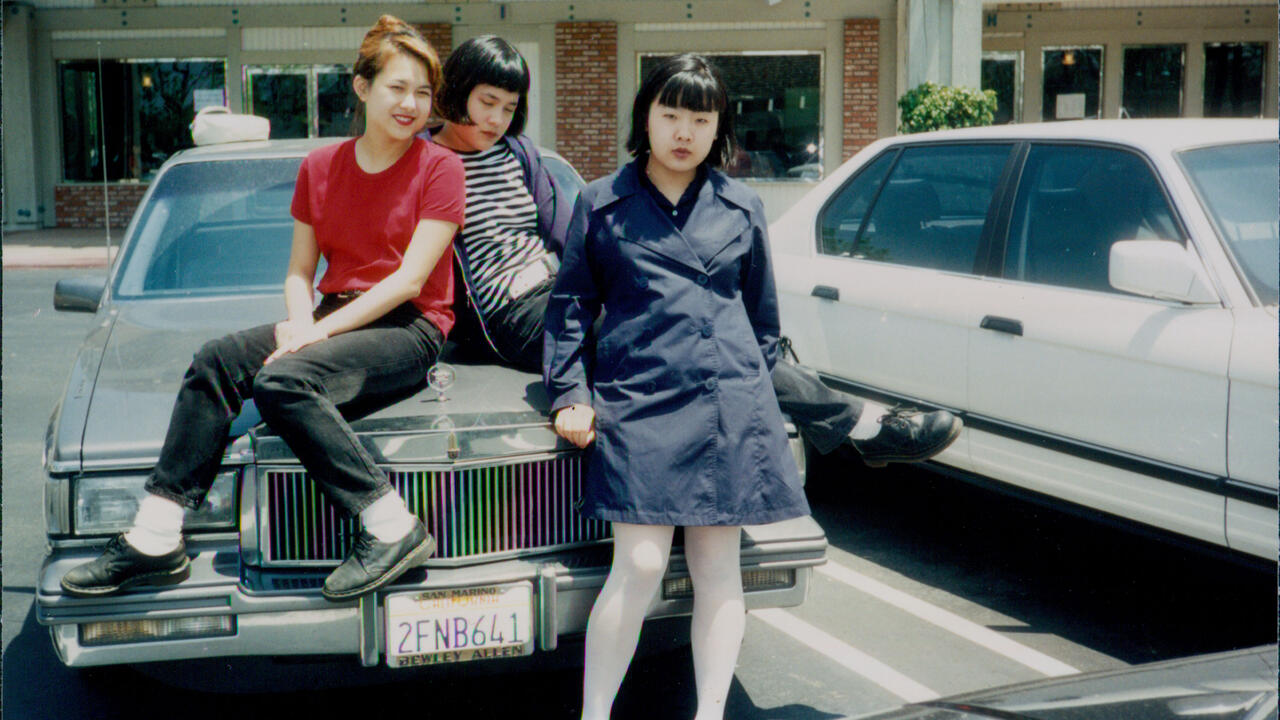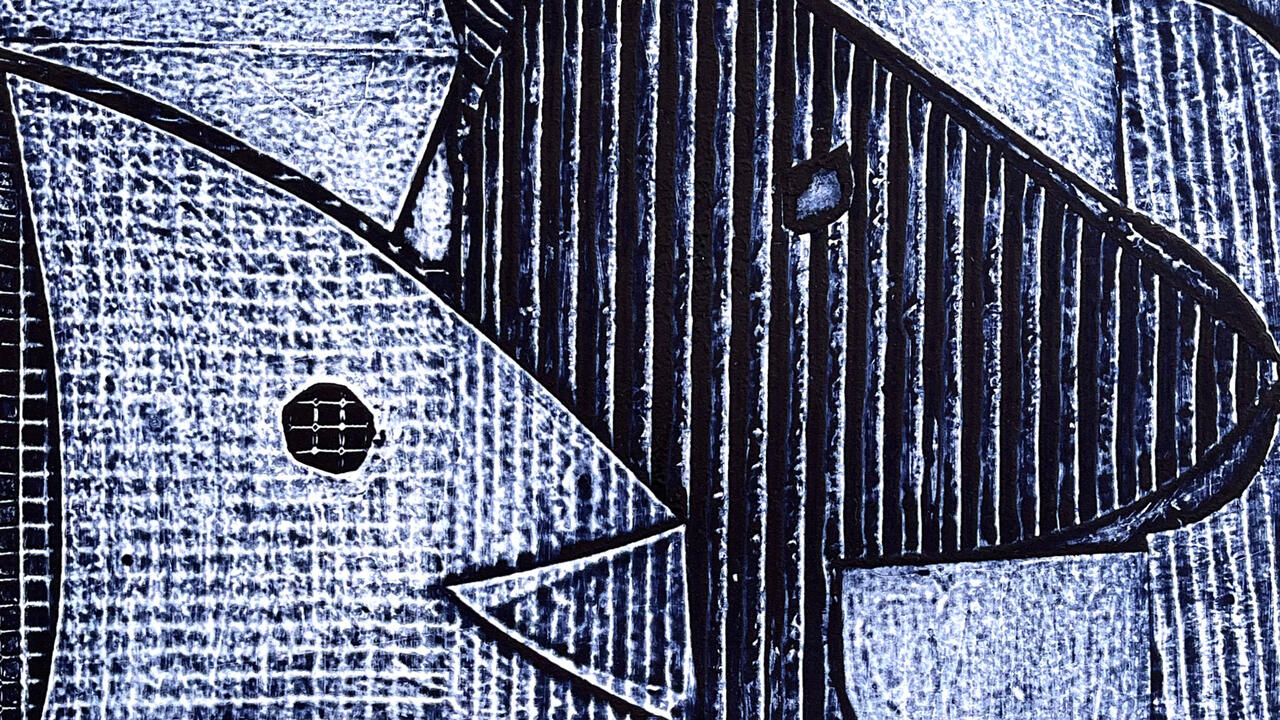The Myth of Lana Del Rey Becomes Real
While some have written that Norman Fucking Rockwell! is about the coming end of America, Del Rey knows that America is already over
While some have written that Norman Fucking Rockwell! is about the coming end of America, Del Rey knows that America is already over

Where is Lana Del Rey from? What a boring question. It’s been asked more than answered; her various origin stories crosshatch the sky – like chemtrails. When she wears an oversized LOCALS ONLY jacket on a Long Beach port terminal in the recent video for her elegiac single ‘The Greatest’ from her latest album, Norman Fucking Rockwell! (2019), the phrase shimmers over her. When she sings that she’s ‘well qualified to represent the LBC’ in her cover of Sublime’s ‘Doin’ Time’ (1997), she only emphasizes her lack of qualifications to represent anywhere. (After all, she was 12 when the song came out.) She is American, surely. But the America she lives in seems different than ours. Over six albums, she has skimmed across Hollywood, New York, Brooklyn, Las Vegas, Miami, Hyannis, the desert, the prairie, all of the states and the Garden of Eden. She swipes through landscapes as if they were boys online, horny and bored. No one would describe her as grounded. In most of her live performances, her body swirls, soft steps along invisible fault lines, rotating on a different axis, never quite on beat. Her inability to look comfortable in her body makes for an ambivalent eroticism, a desire dizzy with intoxicating self-consciousness. All she wanted was to keep wanting.
Del Rey pledged allegiance to wide roads, fast cars, open borders, dead presidents. But now, like so many who were born nowhere, she’s moved to LA, just before fire season. Many people are saying her new album is about the end of America, but I think it’s about living in a place that has already ended, living in its memory and the carcass, which is to say: America’s been dead a long time. The apocalypse happened hundreds of years ago. How does it feel to live in a place that is also an idea of a place that is also the emptiness the place left behind? That psychedelic mix of physical decentralization and filmic over-representation makes LA feel like a ghost town full of people. What’s funny is, when you write about how it feels to live in LA, you are also writing about how it feels to be a girl.

Like LA, Lana Del Rey, the stage name of Elizabeth Grant, is a project of quotation. I don’t think there’s a single song on the new record that doesn’t borrow phrases or riffs from someone else. Her lyric cosmology includes The Beach Boys, Leonard Cohen, Bob Dylan, The Eagles, Led Zeppelin, The Mamas and the Papas, Joni Mitchell, Neil Young, countless girl groups, and so on, and so on. It’s beyond pastiche; it’s library-like, almost career-as-archive. Del Rey remembers and memorializes while simultaneously erasing authorship and context: ‘I heard the war was over, if you really choose,’ she intones in ‘California’, converting John Lennon’s anti-war slogan into a woozy rumour. ‘But sometimes, girls just want to have fun/ The poetry inside me is warm like a gun,’ she lilts in ‘Bartender’, merging Cyndi Lauper and George Harrison in such an unexpected combination that both become almost unrecognizable. There’s that disembodiment again. Even when she’s singing original lyrics, they seem to reverberate with familiarity, as if they had been lifted from some collective cadence and content. Some have called this cliché or inauthentic. But, to me, she offers a more profound, compassionate definition of cliché: a thing we all know has happened many times but can’t tell you where or how or by whom. Cliché against private property! If anonymous was a woman, cliché might be her sister. This ambivalence about authorship, the inability to claim an original self, and yet the need to speak one’s subjectivity anyway – to speak through collage – also has its own precedent. Camp has always venerated the soap opera and other mass-produced narratives as the intimate material of side-lined lives.
Now Del Rey has accumulated enough material to start repeating herself, endlessly recycling fragments of her own mythology. She doesn’t just reference past albums to demonstrate narrative development. The media insists that she has grown in this album, matured into a more serious, genuine, joyful, empowered or articulate artist. To me, this has always seemed conservative. Don’t we stan a queen of inertia, stasis, horizontality? She’s never promised action: ‘We go so fast, we don’t move,’ Del Rey croons in ‘Love Song’. She emerged like this, empty and whole. Unlike most celebrities, singers and actors, her messaging has not dramatically changed since Donald Trump became president, except for a few minor tweaks. (She stopped performing in front of the American flag in 2017.) Instead, we have to sit with what hasn’t changed under the current president – what the US was before him, and what it will remain after; all that Trump merely hears, repeats and bellows back to us.
In Norman Fucking Rockwell!, she repeatedly refers to the titles of her songs within other songs. (She quotes ‘Venice Bitch’ in ‘Mariner’s Apartment Complex’, ‘Norman Rockwell’ in ‘Venice Bitch’.) Musical phrases recur across the album itself, a shiver of déjà vu. This repetitive tendency is sometimes somnolent, mantra-like and narcotic (‘Dream a little dream of me,’ she sings in ‘Fuck It I Love You’, quoting Ella Fitzgerald; ‘Dream a dream, here’s a scene,’ she sings in ‘Love Song’, a few minutes later). Sometimes, it feels lazy in the best way, lazy like the morning after sex, lazy like LA when you could still afford rent with a three-day work week. When I saw her in concert this summer, she sang the entirety of her 2014 anthem ‘Pretty When You Cry’ while lying completely flat on the floor. It looked like the stage was empty; a live stream broadcast her recline on huge screens around us. We stared at nothing, while she took a rest. I wept with exultant identification.

Sometimes her repetitions glitch and stutter, like in the video for her psych rock magnum opus ‘Venice Bitch’, which replays found freeway footage until you almost feel like you might be going somewhere. In Sigmund Freud’s 1914 essay ‘Remembering, Repeating and Working-Through’, the psychoanalyst described ‘a compulsion to repeat’ which takes the place of memory. Instead of remembering the past, a patient unconsciously re-creates its conditions. By doing the same thing again and again, we both stave off threatening new experiences and try to drive in reverse, so to speak, moving against the current towards what the death drive ultimately craves: a return to the selfless, pre-birth state. This echoes Del Rey’s once very public wish to be ‘dead already’, which is not the same thing as wanting to die.
In Joan Didion’s 1970 novel Play It as It Lays, the protagonist, Maria, sleeps or circles the LA freeways all day. She isn’t going anywhere. ‘Venice Bitch’ – all nine minutes and 47 seconds of it – is a song destined for these drives, quoting Tommy James and the Shondells’ 1968 song ‘Crimson and Clover’: ‘Over and over, over and over, over and over’. The most famous line of Didion’s novel – ‘I know what nothing means and keep on playing’ – is a precursor to what will be the most famous line of Norman Fucking Rockwell!: ‘I miss doing nothing the most of all.’ Nothingness is something we do, something we know, day after day.
In the album’s transcendent closer, ‘hope is a dangerous thing for a woman like me to have – but i have it’, Del Rey puts her sadness back in context. It can only be communicated in the negative: ‘Don’t ask if I’m happy, you know that I’m not / But at best, I can say I’m not sad.’ She is not more than anything else. This ‘24/7 Sylvia Plath’ blinks, sputters, glows. In a way, Del Rey has always been operating at an apocalyptic register because she has always been writing about heartbreak, all the ends of the world we keep in our bedrooms. She has been called girlish because young girls are known for intercepting the highest frequency of feeling, for recognizing the mythological implications of supposedly banal personal dramas. Maybe that’s what she’s always cared about, and all that Americana is only a means to The End – Hollywood style.




















